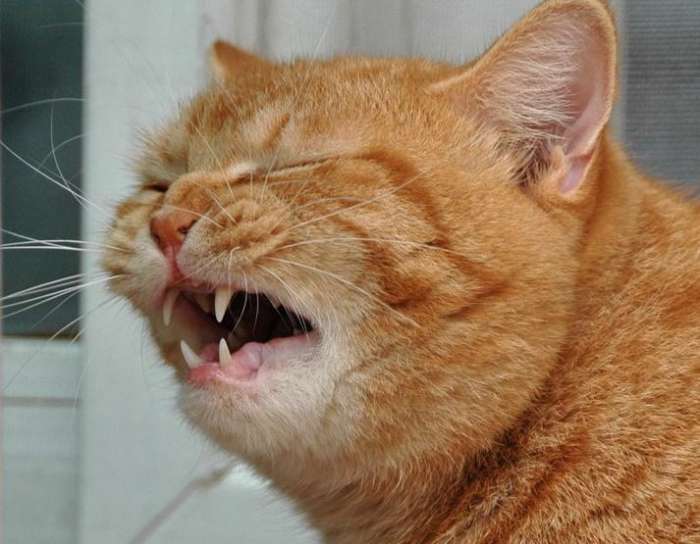Sneezing in cats can be concerning for pet owners, often raising questions about underlying health issues. While occasional sneezing is generally harmless, it can also indicate a more serious condition. This comprehensive guide will explore the various causes of sneezing in cats, the symptoms to watch for, and the appropriate responses to help your feline friend.

1. Understanding Sneezing in Cats
What Is Sneezing?
Sneezing is a reflex action that occurs when irritants stimulate the nasal passages. In cats, sneezing can be a common occurrence, often triggered by environmental factors or health conditions.
Normal vs. Abnormal Sneezing
- Normal Sneezing: Occasional sneezing, particularly after exposure to dust or strong odors, is usually harmless.
- Abnormal Sneezing: Frequent sneezing, especially accompanied by other symptoms, may indicate an underlying issue that needs attention.
2. Common Causes of Sneezing in Cats
Allergies and Irritants
Environmental Allergens
Cats can be sensitive to various allergens that may cause sneezing, including:
- Pollen: Seasonal allergies can trigger sneezing during certain times of the year.
- Dust Mites: Accumulated dust in the home can lead to allergic reactions.
- Strong Odors: Scents from cleaning products, perfumes, or candles can irritate a cat’s nasal passages.
Infections
Upper Respiratory Infections
Upper respiratory infections (URIs) are one of the most common causes of sneezing in cats. These infections can be caused by:
- Viruses: Feline herpesvirus and calicivirus are common culprits.
- Bacteria: Secondary bacterial infections may occur, exacerbating sneezing.
Dental Issues
Periodontal Disease
Dental problems, particularly periodontal disease, can lead to sneezing due to the close proximity of the mouth and nasal passages. Infections or abscesses in the mouth can irritate the nasal area, causing your cat to sneeze.
Foreign Objects
Inhaled Particles
Sometimes, cats may inhale small particles like grass, seeds, or other foreign objects, leading to irritation and sneezing as a way to expel the irritant.
3. Symptoms to Watch For
Associated Symptoms of Sneezing
If your cat is sneezing, it’s important to observe for additional symptoms that may indicate a more serious issue:
- Nasal Discharge: Clear, yellow, or green discharge from the nose can indicate an infection.
- Coughing: Persistent coughing may suggest respiratory issues.
- Lethargy: A noticeable decrease in energy can be a sign of illness.
- Loss of Appetite: A sudden change in eating habits may warrant further investigation.
- Fever: An elevated body temperature can indicate infection or illness.
4. Diagnosing the Cause of Sneezing
Veterinary Consultation
If your cat’s sneezing persists or is accompanied by concerning symptoms, a visit to the veterinarian is essential. The diagnostic process may include:
- Physical Examination: A thorough examination of the nasal passages and throat.
- Medical History: Discussion of the cat’s medical history, including vaccinations and past illnesses.
- Diagnostic Tests: Blood tests, urinalysis, or imaging studies (like X-rays) may be performed to identify the underlying issue.
5. Treatment Options for Sneezing in Cats
Home Remedies
Environmental Management
- Air Quality: Maintain a clean environment by using air purifiers and regularly cleaning to reduce dust and allergens.
- Avoid Irritants: Limit exposure to strong scents and irritants that may trigger sneezing.
Medical Treatment
Veterinary Medications
- Antihistamines: For allergic reactions, your veterinarian may recommend antihistamines to reduce sneezing and nasal discharge.
- Antibiotics: If a bacterial infection is diagnosed, a course of antibiotics may be prescribed.
- Nasal Decongestants: These can help relieve nasal congestion in cats with upper respiratory infections.
6. Preventing Sneezing in Cats
Preventative Measures
Regular Veterinary Care
- Routine Check-ups: Regular veterinary visits can help detect health issues early, preventing complications.
- Vaccinations: Keeping vaccinations up to date can protect against viral infections that cause sneezing.
Environmental Controls
- Clean Living Space: Regularly clean your home to reduce dust, mold, and allergens.
- Dietary Considerations: A balanced diet can support overall health and a strong immune system.
7. When to Seek Emergency Care
Recognizing Serious Symptoms
If your cat exhibits any of the following symptoms, seek immediate veterinary care:
- Severe Breathing Difficulties: Struggling to breathe or gasping for air.
- Persistent Bleeding: Any signs of bleeding from the nose or mouth.
- Rapid Weight Loss: Significant and rapid weight loss without a clear reason.
8. Conclusion
While occasional sneezing in cats is usually harmless, persistent sneezing accompanied by other symptoms may indicate an underlying health issue. Understanding the potential causes and recognizing the associated symptoms can help you take appropriate action to ensure your cat’s well-being. Regular veterinary care and a clean, allergen-free environment can help keep your feline friend healthy and comfortable.

Comments (0)